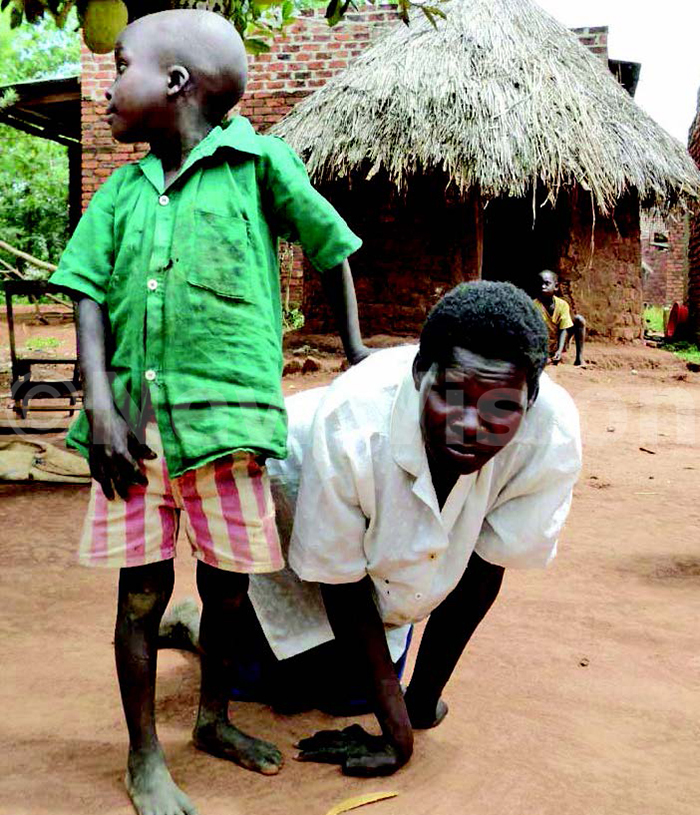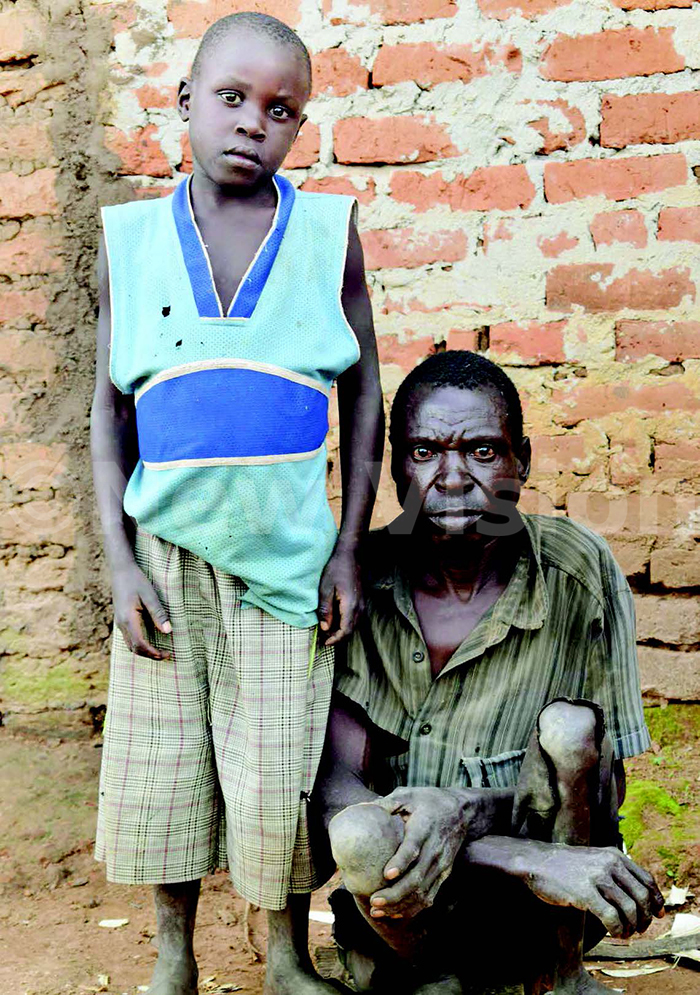Tragedy of HIV and Disability
I understand the error. People who have mental disorders are exempted from Atazavir 3TC (one of the ARVs) because of its strong effect on the brain
Scovia Nanyolya has a mental disorder that developed in her early adolescence. The 28-year-old from Budaka district was repeatedly raped whenever she wandered into secluded places.
Nanyolya's maternal aunt, Ezereya Nabwire, 75, says: "Nobody knows how many times she has been raped. The poor woman now has five children and a pregnancy in advanced stages. But the worse news is that she has HIV."
"What annoys me is that those who rape her remain undercover throughout her pregnancies, only to come out after she has delivered, claiming paternity of the babies," Nabwire says.
Budaka district focal person, Samuel Lyada, who is also in charge of Naboa Health Centre III, says Nanyolya is among the 4,000 registered community members living with HIV in the district. "We first learnt about her HIV status in 2016, when she turned up for antenatal services for her fifth pregnancy," Lyada says.
EFFECT ON HER STATUS
Micheal Mwai, the HIV/AIDS counsellor at the health facility, guided Saturday Vision to Nanyolya's home. "She is a wonderful girl, but when she relapses into confusion, it is difficult to control her," Nanyolya's aunt says.
 Kabejja
Kabejja
Nanyolya was able to recognise the counsellor, whom she warned not to talk about ARVs, saying they gave her nausea and had caused her loss of appetite. Dr Alice Adong, who is attached to The AIDs Support Organisation (TASO) regional centre in Mbale district, explained that Nanyolya's ARV regiment needs to be changed to enable her get back on drugs.
"I understand the error. People who have mental disorders are exempted from Atazavir 3TC (one of the ARVs) because of its strong effect on the brain," she says. However, doctors advise that people living with HIV should never wait for their immunity to collapse. Adong says most PWDs living with HIV have similar problems.
Harriet Kambejja, 31, of Chokolomo in Kibuku district was born with a deformity that prevented her from walking. Even when she crawls, she is a victim of sexual assault.
Six years ago, Kambejja crawled about 50 metres away from her parents home to look for vegetables. While there, a man raped her. "I lost my virginity, got pregnant, and contracted HIV at the same time," she says.
Kambejja's parents learnt of her pregnancy too late to access the PMTCT and the child was born with HIV. Kambejja and her child have registered with TASO regional centre in Mbale.
Unlike Nanyolya, Kambejja said they are taking their drugs religiously. It is not always a tragedy, however. In spite of the challenges, some pull through to resume a normal life.
Robinah Tankubesheku, 35, from Namuseru 11, Naboa sub-county, in Budaka, was born with a deformed left leg. Tankubesheku was raped when she had gone to collect firewood four years ago. She escaped pregnancy, but contracted HIV. She learnt about it six months later when her health condition deteriorated and was put on ARVs. In 2016, Tankubesheku married Tom Majanga, 52, who is also living with HIV.
MEN ALSO VICTIMS
Men have not been spared from similar HIV challenges either. Joseph Esiata, 46, from Bukedea was born with twisted legs. Six years ago, he married Christine Akello, who has no disability.
"Shortly after Akello delivered our son, she changed. She became promiscuous. On two occasions before we finally separated, she eloped with different men, only to return home pleading for forgiveness. I forgave her, but little did I know that I was putting myself at the risk of contracting HIV," he said. When Esiata started falling sick, Akello vanished. It is his 75-year-old mother, Jane Alupo, who is looking after him.
 Esiata
Esiata
TASO STRATEGY
TASO regional centre physician Dr. Bonny Oriokot, says they have a robust drug distribution modality where clients suggest a convenient point where to deliver treatment.
Dr. Alice Apio, also attached to TASO regional centre in Mbale, says often PWDs register for ARVs late when their health has deteriorated.
HANDOUTS
Owor and Lyada say the Government should reinstate the food handout programme, which was revoked at the beginning of 2017. They advise that it should be reinstated but targeting the most vulnerable HIV clientele.
What challenges do PWDs face?
TASO regional manager Charles Owor says the Mbale centre has 316 PWDs living with HIV. Of these, 286 are women (85%) and 90% of these say they contracted HIV through violent sexual aggression. "Unfortunately, the tormentors of these female PWD clienteles are able-bodied male members of the community, with sound minds. Others are actually relatives," he says.
Budaka district focal person Samuel Lyada says unlike TASO's clientele, the district PWD community living with HIV is estimated to be bigger, even when the official registered ones at public health utilities are 100. He attributes the small registered number to the district's method of drug distribution, where all people on ARVs are obliged to turn up at the respective public health facilities for their drug ration.
Lyada adds that the majority lack wheelchairs and have no viable economic activity that would afford them money for transport. "Under the current HIV/AIDS service provision for public health facilities in the districts, no vote has been committed to cater for HIV/AIDS outreach services as is the case with our counterparts, TASO," he says.